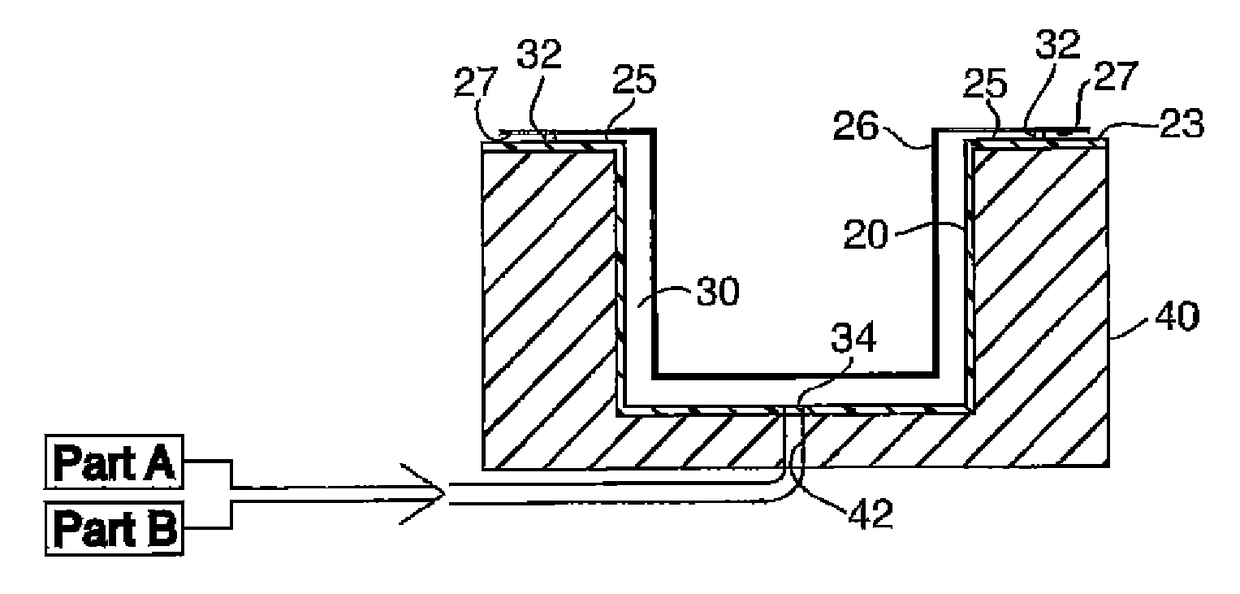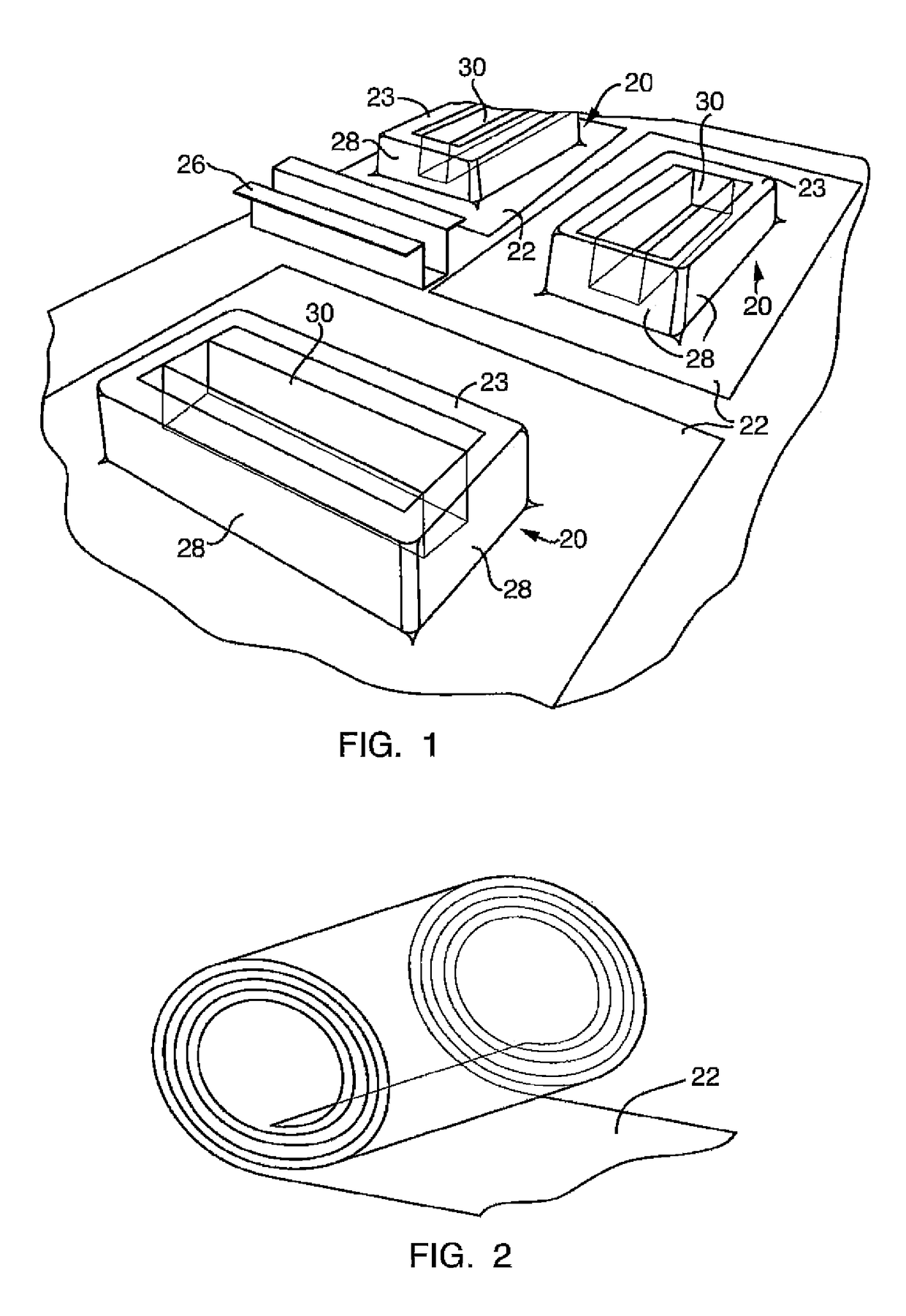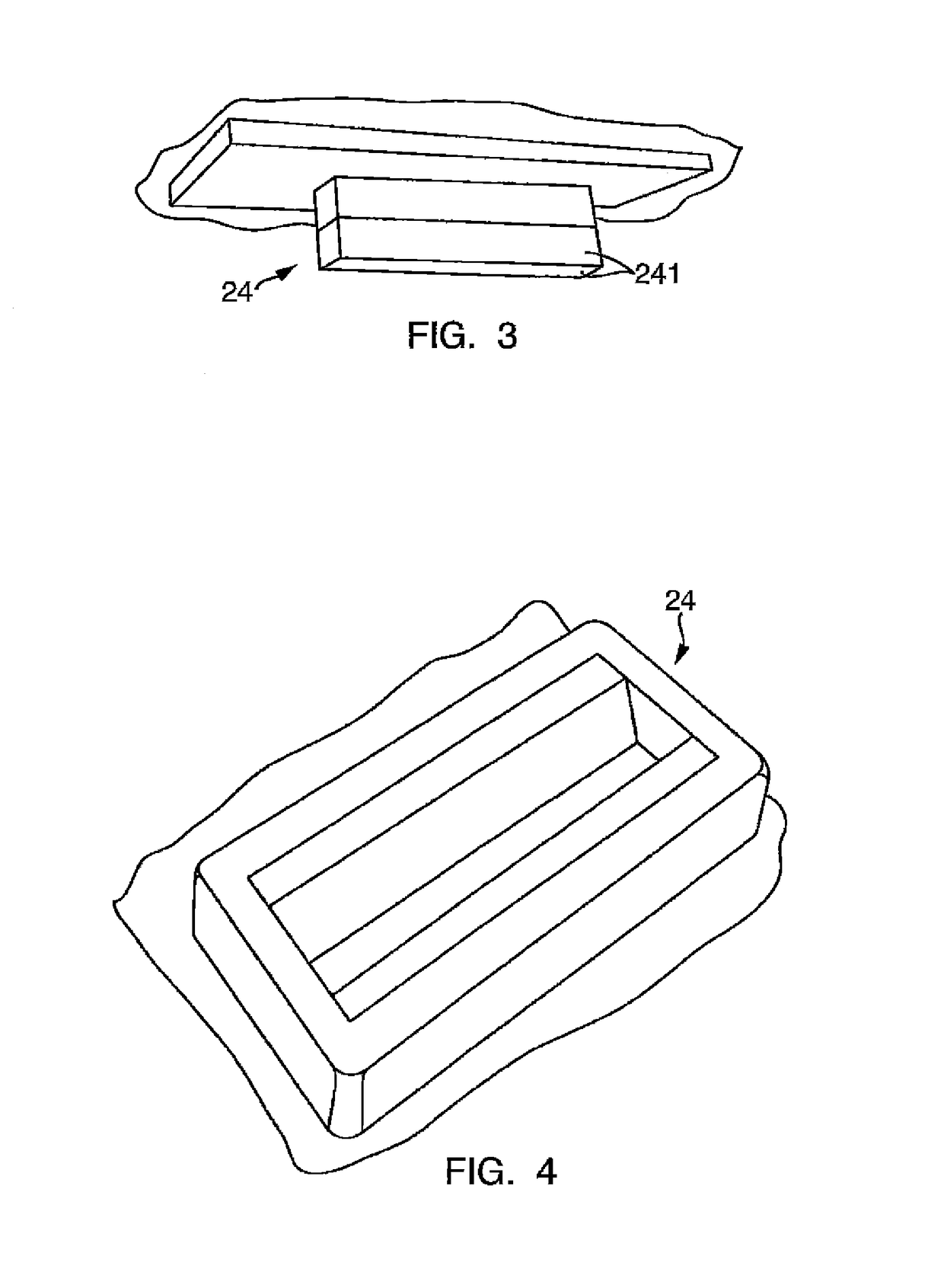Method of manufacturing a composite insert by molding
a composite insert and molding technology, applied in the field of manufacturing a composite insert, can solve the problems of significant time and process control monitoring, limited geometry of extruded parts, and high cost of molds, dies and other equipment used to injection mold or extrude under these conditions, and achieve the effect of reducing the overall process cos
- Summary
- Abstract
- Description
- Claims
- Application Information
AI Technical Summary
Benefits of technology
Problems solved by technology
Method used
Image
Examples
Embodiment Construction
[0023]Referring to the Figures, wherein like numerals indicate corresponding parts throughout the several views, a method of manufacturing a composite insert, as well as a method of manufacturing a composite part including the composite insert and a carrier joined together, first includes a step of obtaining, forming or having formed (hereinafter referred to collectively as “forming”) a polymer mold 20 for use in manufacturing the composite insert. One example of a polymer mold 20 that may result from such a forming step is generally shown in FIG. 1. The polymer mold 20 of the embodiment shown in FIG. 1 comprises a cavity 30 for accepting a composite insert composition dispensed as a flowable or low pressure injectable material. Cavity 30 terminates at flange surfaces 23, which surround the cavity and extend outward therefrom. In this embodiment, the polymer mold 20 has external walls 28 and is self supporting.
[0024]The polymer mold 20 shown in FIG. 1 is only a generic embodiment of...
PUM
| Property | Measurement | Unit |
|---|---|---|
| temperature | aaaaa | aaaaa |
| pressure | aaaaa | aaaaa |
| residence time | aaaaa | aaaaa |
Abstract
Description
Claims
Application Information
 Login to View More
Login to View More - R&D
- Intellectual Property
- Life Sciences
- Materials
- Tech Scout
- Unparalleled Data Quality
- Higher Quality Content
- 60% Fewer Hallucinations
Browse by: Latest US Patents, China's latest patents, Technical Efficacy Thesaurus, Application Domain, Technology Topic, Popular Technical Reports.
© 2025 PatSnap. All rights reserved.Legal|Privacy policy|Modern Slavery Act Transparency Statement|Sitemap|About US| Contact US: help@patsnap.com



